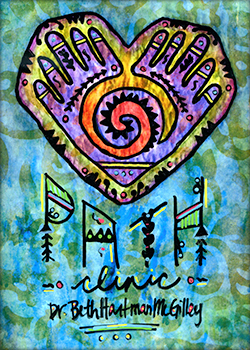Healing Mantras
Healing Mantras for Recovery
As one who’s recovered from anorexia and a specialist in eating disorders treatment for over 30 years, I've paid particular attention to the language and perspectives that impart hope and inspiration for recovery. How we say something, when we say it, and what we mean can help ignite change.
Through the help of my clients, I've coined several phrases that we call healing mantras. Much like the Alcoholics Anonymous tradition, in which recovering individuals share concepts such as "one day at a time" or "let go, let God," the following mantras are offered in support to families, friends, and all of those in recovery who need both gentle and bold reminders that recovery is possible, that it is a choice, and that it requires a significant shift in one's perspective.
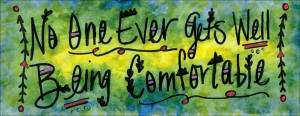
"No One Ever Gets Well Being Comfortable": One day in my adolescent eating disorders group, when one member was lamenting how tough it was to follow her program, another girl, further along in recovery, made the above statement. Likening eating disorder treatment to chemotherapy of the soul, she was candidly acknowledging the process. This is similar to the Buddhist concept that pain is inevitable but suffering is optional. It also speaks to the common experience in healing that we feel worse before we feel better. The key is that we're feeling, and that's a major milestone in recovery!
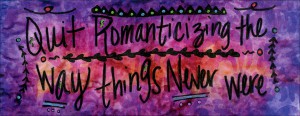
"Quit Romanticizing the Way Things Never Were": Amy, early in her recovery, was inconsolable about the weight she'd restored in the process of recovery. In session, she was harkening back to her high school days, sounding all but nostalgic and wistful about a time when she was too weak to climb the school stairs! I reminded her that anorexia had devoured her high school years, that she slept while her peers played sports and music, sang in the musicals, and pursued their crushes. Amy's poignant reply signaled a turning point in her recovery - she needed to see her anorexia for the disease that it is, and she needed to grieve the hollow "distinction" she once felt it provided.
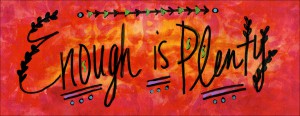
"Enough is Plenty": Anyone who is or knows a perfectionist will immediately recognize the challenge in this perspective. Perfectionists and eating disorder sufferers share a tendency to see things in extremes, and to feel that anything less than perfect is a failure. The concept that "enough is plenty" has far-reaching therapeutic applications. For example, mastering one's relationship to food and fullness, tolerating ambiguity and others. Too often our doing can become our undoing. Finding the healthy and effective balance in our efforts is a lifelong pursuit. This perspective helps to maintain our resolve while also minimizing unrealistic standards or expectations.
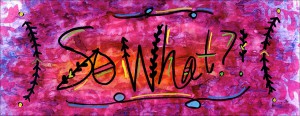
"So What?!": Know anyone who lives as if she can foretell the future and that the future is bleak? Just as our doing can be our undoing, NOT acting has it's own potential pitfalls. Fear, or the anticipation of harm, failure, or conflict typically paralyzes those with eating disorders. I have found it instructive to encourage clients to "dare their dread," to move into the fearful feelings or situations and to trust their resourcefulness. So what if things don't work out, if someone gets mad, or if you change your mind? Recovery requires risks, and resilience is born of successfully negotiating adversity.
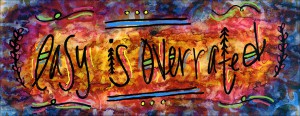
"Easy Is Overrated": Too often when faced with conflict or adversity, we're inclined to say the required change is "too hard." I have found it essential to help my clients and families embrace the reality that their journey, though difficult, is well worth the effort. Staying stuck, in conflict, or risking death is clearly NOT the "easier" solution.
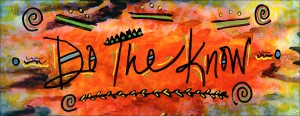
"Do the Know": This mantra was coined in response to the countless "Aha!" moments I witnessed by patients during therapy that never translated into active change outside of it. Knowing without doing what's required for growth is an empty insight. "Do the Know" is a clarion call to all those suffering to make a change in their lives - take the chance, start a new life, risk love, and write the soundtrack of their life.
